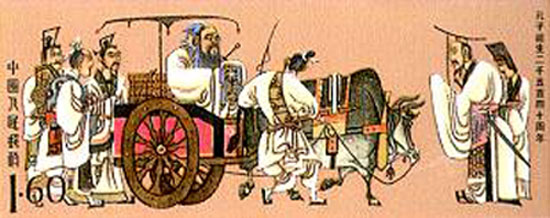
Confucianism laid a basis for the social order in ancient China since 200 BC. It provided working rules and ethical precepts for Chinese to follow. Even today the majority of Chinese still behave according to these rules.
Confucianism regards individual as a social creature obligated to each other through relationships. These may include the relations between sovereign and subject, parent and child, elder and younger, husband and wife, or even friend and friend. Confucianism defined the rules in the engagement, action, and responsibilities in all these human relationships and interactions. Proper conduct proceeds not through compulsion, but through a sense of virtue and self-consciousness achieved by learning, observing and practicing.
Confucianism has a lot of similarities with socialism today. Both promote collective interests and community welfare. Both emphasize the educational or remolding process in serving the common good of the society. These concepts may be quite different from the West that every individual is a completely independent entity. Individual freedom is well above the social order and welfare.
Confucius is one of the greatest educators. He insisted that in education there should be no class distinctions. He established an education system for training in administrative and diplomatic arts. The system was later adapted as a central government examination system in selecting senior officers. For years, all students and scholars alike worked very hard for the annual examination in the hope that they might become senior officers in the government.
There are still many temples in memory of Confucius in China and South Asian countries. Some of these places consist of a series of courtyards, surrounded by buildings in beautiful Chinese style. Visitors can study many Confucian documents and works kept there.
Confucianism is not a religion. Warship of Confucianism can be seen in some of the temples but mainly as a form of memory and respect towards the scholar. Confucianism has no clergy leadership and it does not promote the believing in god or gods. The Confucian temples in China today are treated as historical rather than religious sites, and one seldom, if ever, finds worshipers there. Confucianism is viewed as a moral teaching and ethical humanism rather than as a religion.